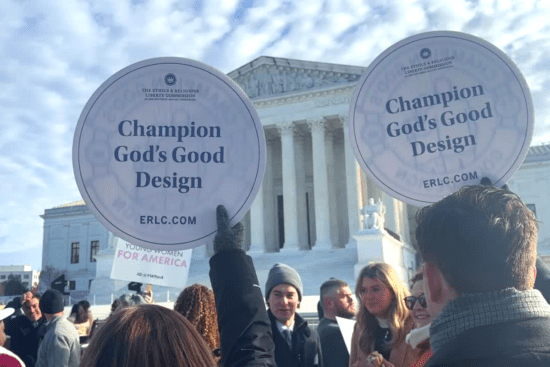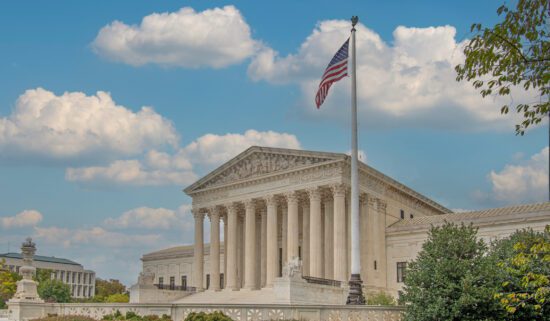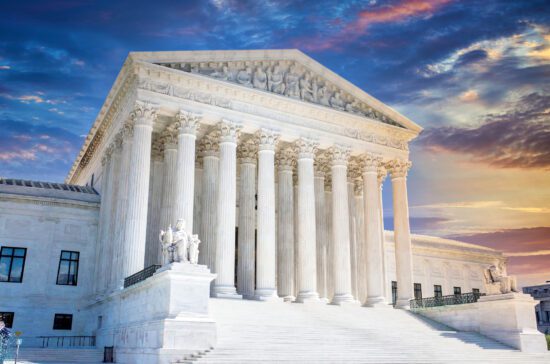What just happened?
The Supreme Court refused to hear a case, Stormans v. Wiesman, that challenges a Washington law requiring pharmacists to dispense abortifacient drugs even when doing so would violate their religious beliefs.
What was the case about?
According to the Becket Fund for Religious Liberty, in 2007 the Washington State Board of Pharmacy passed new regulations—drafted by Planned Parenthood—making it illegal to refer patients to neighboring pharmacies for reasons of conscience, despite allowing them to refer patients elsewhere for a wide variety of business, economic, or convenience reasons.
Two individual pharmacists and the owners of a family owned pharmacy challenged the law after suffering the repercussions of refusing to dispense Plan B (“the morning-after pill”) or ella (“the week-after pill”). Margo Thelen lost her job while Rhonda Mesler was told she would have to transfer to another state. Kevin Stormans, the owner of Ralph’s Thriftway, faced repeated investigations and threats of punishment from the State Board of Pharmacy. These plantiffs appealed to the federal courts on the grounds that their religious liberty had been violated.
In 2012, the federal court in Tacoma, Washington struck down the regulations.
“The Board of Pharmacy’s 2007 rules are not neutral, and they are not generally applicable,” the Court explained. “They were designed instead to force religious objectors to dispense Plan B, and they sought to do so despite the fact that refusals to deliver for all sorts of secular reasons were permitted.”
“The Board’s regulations have been aimed at Plan B and conscientious objections from their inception,” the court added. “Indeed, Plaintiffs have presented reams of [internal government documents] demonstrating that the predominant purpose of the rule was to stamp out the right to refuse [for religious reasons].”
But in 2015, a federal appeals court overturned that decision. The plaintiffs in the case appealed to the Supreme Court in January 2016.
What happens to the plaintiffs now?
Because the Supreme Court refused to consider the case, the appeals court ruling stands and the law remains in effect. This could limit the conscience rights of pharmacists throughout the state of Washington (49 other states already allow pharmacists to refer patients to other stores when they don’t keep a drug in stock).
The case may have a profound and direct effect on the Storman family. For four generations and over 70 years, the Stormans have owned and operated Ralph’s and Bayview Thriftways in Olympia, Washington. But they may lose their business because they refuse to violate their conscience and sell the abortifacients. As Kevin Storman recently said, “I don’t know what the end result’s going to be. But it’s clear we’re here for a purpose. I’ll just ride this ship and do the right thing and believe God’s going to use that for His glory.”
Why didn’t the Supreme Court take the case?
Four of the nine Justices must vote to accept a case. Justices Alito, Thomas, and Roberts all said they would have accepted the case.
What are the broader ramifications of the case?
When the case was refused Justices Alito, Thomas, and Roberts wrote that the plaintiffs have “raised more than ‘slight suspicion’ that the rules challenged here reflect antipathy toward religious beliefs that do not accord with the views of those holding the levers of government power.”
In the opening of their statement they raise concerns about the Court’s refusal to take on this case:
This case is an ominous sign.
At issue are Washington State regulations that are likely to make a pharmacist unemployable if he or she objects on religious grounds to dispensing certain prescription medications. There are strong reasons to doubt whether the regulations were adopted for—or that they actually serve—any legitimate purpose. And there is much evidence that the impetus for the adoption of the regulations was hostility to pharmacists whose religious beliefs regarding abortion and contraception are out of step with prevailing opinion in the State. Yet the Ninth Circuit held that the regulations do not violate the First Amendment, and this Court does not deem the case worthy of our time. If this is a sign of how religious liberty claims will be treated in the years ahead, those who value religious freedom have cause for great concern.










